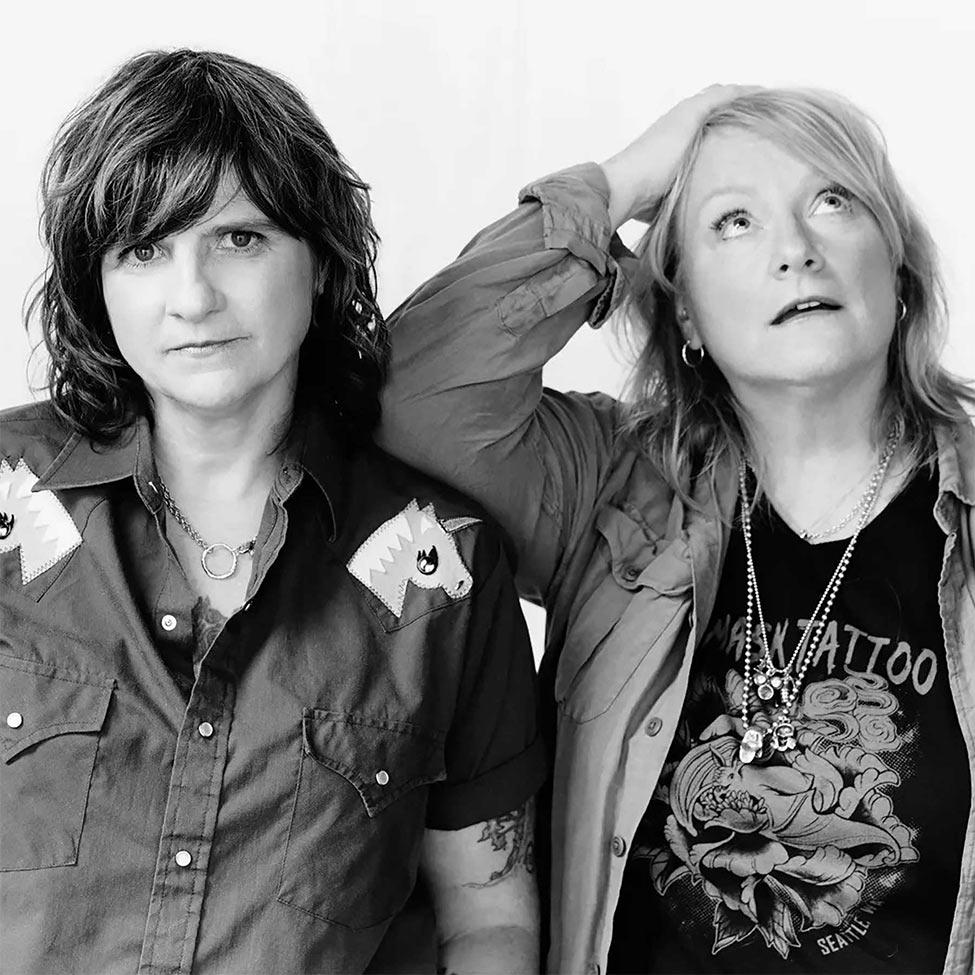
Raising the Bar: Pace Women’s Justice Center Hosts Benefit Concert Featuring Indigo Girls Commemorating Domestic Violence Awareness Month
Each year, the Pace Women’s Justice Center (PWJC) commemorates Domestic Violence Awareness Month in October with the culmination of its Raising the Bar Benefit Concert. This year’s concert will take place at the Capitol Theatre on Thursday, November 3, at 8:00 p.m. The full-length concert will be exclusively performed by the Grammy-winning duo, Indigo Girls.
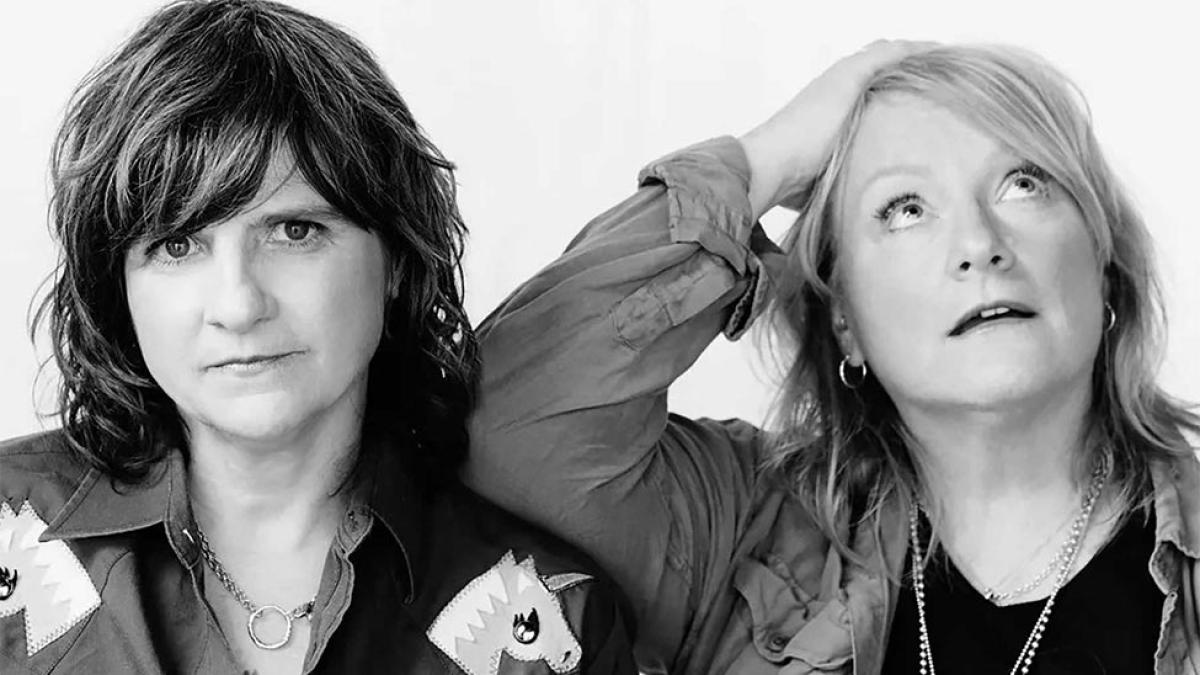

Each year, the Pace Women’s Justice Center (PWJC) commemorates Domestic Violence Awareness Month in October with the culmination of it's Raising the Bar Benefit Concert. This year’s concert will take place at the Capitol Theatre on Friday, November 3, at 8:00 p.m. The full-length concert will be exclusively performed by the Grammy-winning duo, Indigo Girls. The singer-songwriter twosome of Emily Saliers and Amy Ray is considered one of the most successful folk duos in history, with 16 recorded studio albums and over 15 million records sold. Popular for their crowd singalong 1990’s chart hits “Galileo,” “Shame on You,” and “Closer to Fine,” which was recently featured in the box office summer hit movie Barbie. Together, these two women are known for their activism and championing of causes.
“We are thrilled and honored to have the Indigo Girls perform for our benefit concert to raise awareness about domestic violence,” states Cindy Kanusher, Executive Director for PWJC. “As activists with a longstanding commitment to women’s health and human rights, and our common mission to amplify the voices of women and survivors of abuse, we are eager for this opportunity to show solidarity and support for PWJC’s work to end abuse.”
Each October, the nonprofit honors an individual who has dedicated themselves to supporting the PWJC mission and its clients with the Making a Difference Award. This year, Daniel Seymour, President of Cannae Advisors LLC, has been selected as PWJC’s honoree and will be given a special recognition at the benefit concert. Dan has been a devoted advocate as an Advisory Board member for over four years. His generous professional insight, and dedication to supporting the organization’s legal services has helped further the mission to combat the social justice challenges clients face. “I am in awe of the dedication and commitment to the victims of abuse that the Pace Women’s Justice Center serves,” said Seymour. “Cindy Kanusher and the team at PWJC work to increase access to legal services for victims of abuse, which fulfills a critical need in our community. I am humbled to be recognized by PWJC and honored to support this important organization.”
The fundraising event’s title, Raising the Bar Benefit Concert, is a nod to PWJC’s commitment to increasing access to justice and providing FREE critical legal services to victims of domestic violence and sexual assault. The funds raised will allow PWJC to continue helping their clients on their journeys toward empowerment and healing. View information on individual tickets and sponsorships.
About Pace Women's Justice Center
The Pace Women’s Justice Center (PWJC) is a self-funded nonprofit legal center located at Elisabeth Haub School of Law, under the 501(c)(3) status of Pace University. Each year, PWJC provides free legal services to over 3,500 victims and survivors of domestic violence, sexual assault, and elder abuse, as well as conducts or participates in over 140 training and outreach events. Serving Westchester and Putnam Counties, PWJC’s mission is to pursue justice for victims and prevent abuse through quality legal services, community partnerships, education, and awareness. With an experienced staff and a team of dedicated volunteers, including attorneys, other professionals, and students, PWJC has built an effective, coordinated community response to interpersonal violence.
From Pace University to the Mayor's Office: Q+A with Ásthildur Sturludottir ‘06
MPA graduate Ásthildur Sturludottir has been serving as the mayor of Akureyri, Iceland since 2018, where she champions sustainability and renewable energy. Committed to creating a brighter future, she believes that communities, both large and small, should embrace sustainability and leave a positive impact on the environment.
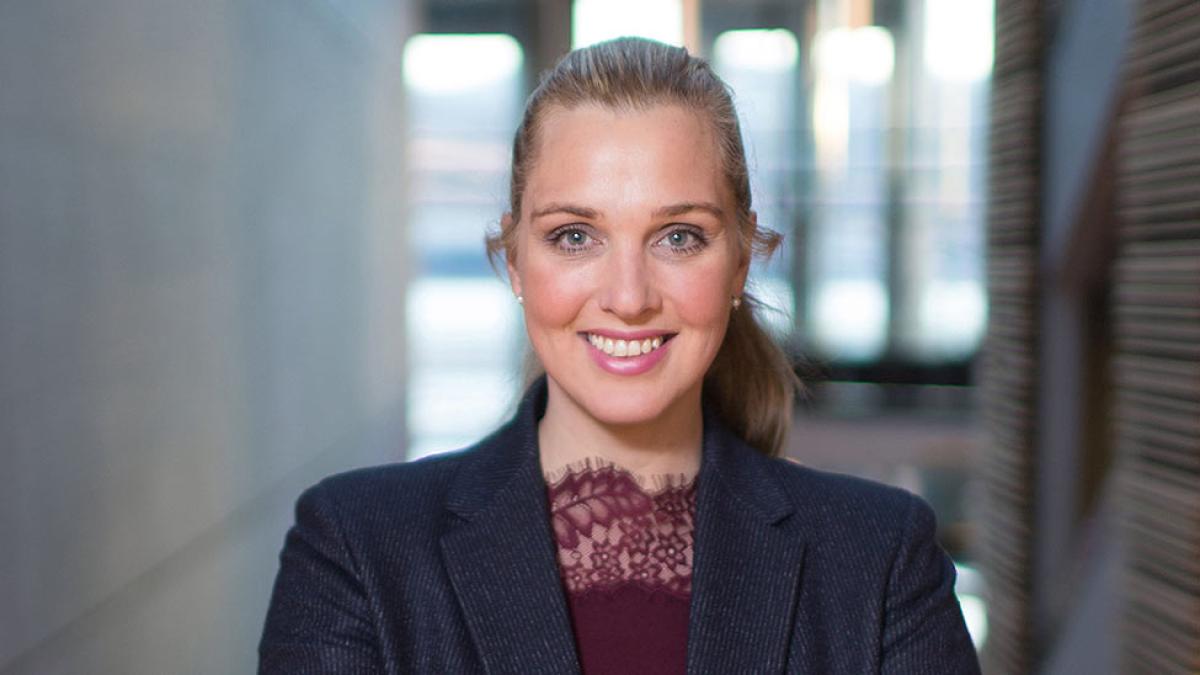
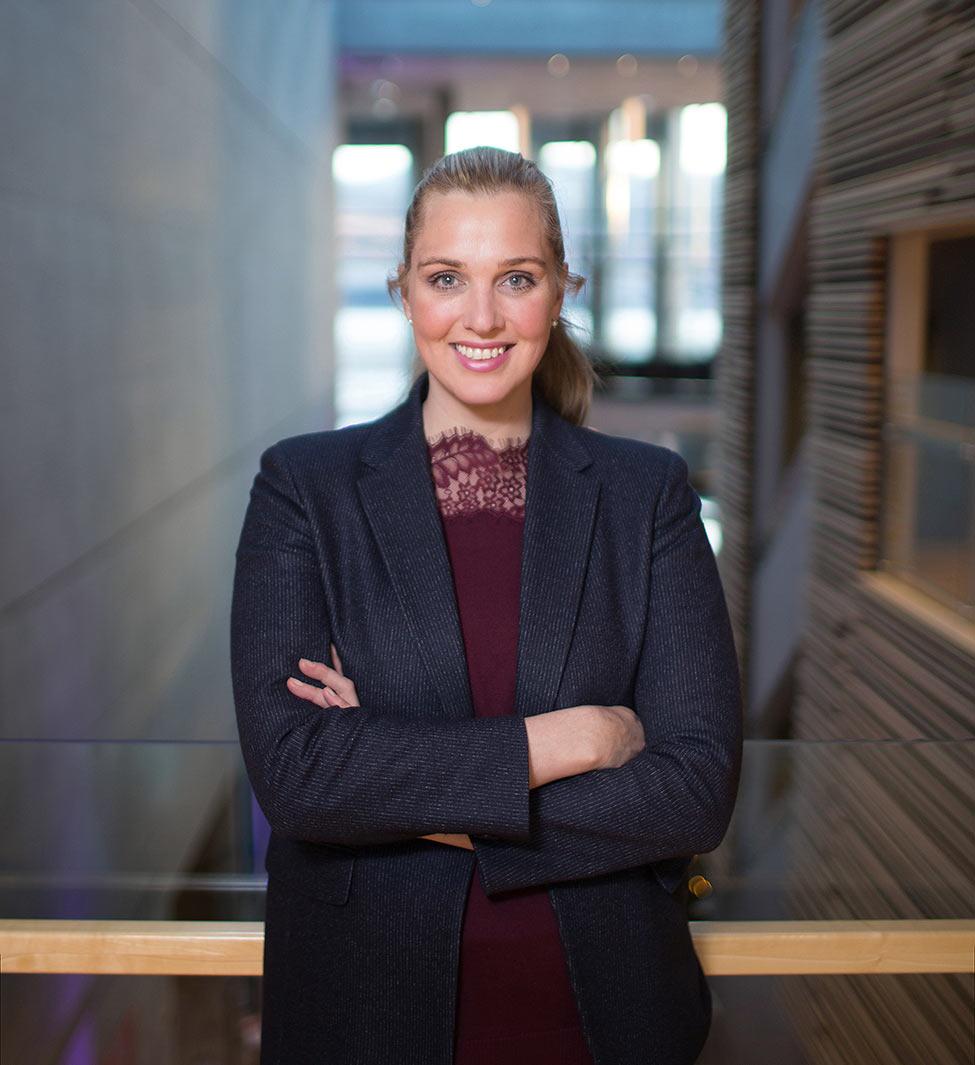
Ásthildur Sturludottir
Class of 2006
Master of Public Administration
As the mayor of Akureyri, Iceland since 2018, Ásthildur Sturludottir ‘06, MPA, has made the environment and sustainability, especially in relation to renewable energy, a top priority in her administration, serving as a role model for others.
What is your vision for a more sustainable future, and what accomplishments are you most proud of and why?
I believe that it is of utmost importance that big and small communities, even individuals themselves, become sustainable and give back what we take from Mother Nature. We must change our way of thinking and ensure a sustainable bright future for coming generations.
I am very proud of what we have been doing here in Akureyri. The town has been at the forefront of environmental issues in Iceland: recycling and producing fuel from organic waste to name a few. We have set ourselves an environmental and climate policy and a detailed action plan, which assumes that we will achieve carbon neutrality and a full energy transition by 2040. These are high and mighty goals, but realistic and necessary.

What issues are you most passionate about and what perspective do you bring as mayor?
In this role, I first want to emphasize effective management of the municipality and balanced finances, so we can guarantee good services and a first-class daily life for the residents of Akureyri. Additionally, I place a high emphasis on quality education for the youth, environmental matters, reliable services for disabled people, advancement of culture and the arts, and sensible city planning.
You graduated with a Master of Public Administration from Pace. What attracted you to pursue this degree? How did you get started in your career? Did you always aspire to run for public office?
I studied public administration because my mind was more inclined towards that sector versus the private one. I first worked for a regional development office for a while and then was hired to be the mayor of a small municipality in the west of Iceland in 2010. It was always my intention to work in the public sector, and as a matter of fact, it was my goal to become a mayor. So, I have simply been looking for exciting opportunities in this field.
How were Dyson faculty or any other member of the Pace community instrumental in your personal and/or professional journey?
My professor, [Professor Emerita of Political Science] Mary Timney, PhD, truly had a great influence on me and helped me enhance my studies. She was a great inspiration, as were Professors Farrokh Hormozi, PhD, and Brian Nickerson, PhD.

What challenges are you proud to have overcome and can share?
It can be extremely challenging to be a woman in a top management position, but it's one that I find satisfying and fun to overcome in most cases. It's also challenging to work with political parties that I'm not a part of, but it has worked out brilliantly and I'm proud of that.
What advice would you give to our students as they navigate their college life?
Focus on your studies. Absorb everything professors have to offer. Go on field trips. Become an intern.
Trump’s ‘Smorgasbord’ Defense And Hope For Jury Nullification In Jan. 6 Conspiracy Case
Professor Bennett Gershman pens an op-ed in Law & Crime about Trump's 'smorgasbord' defense and hope for jury nullification in the Jan. 6 conspiracy case.
Trump criminal charges go to heart of KKK Act
Professor Randolph McLaughlin speaks with Reuters about the latest charges leveled against former President Donald Trump brought under Reconstruction-era laws.
$5 Million Settlement Reached With Family Of Military Veteran Killed By Police In White Plains
The City of White Plains has agreed to a $5 million settlement in the case of Kenneth Chamberlain Sr., a 68-year-old marine veteran who was shot and killed by a White Plains Police officer. The lawyers who led the case include Elisabeth Haub School of Law Professors Debra S. Cohen and Randolph McLaughlin, along with two law school alumni, Mayo Bartlett and Wali Muhammad, from the Civil Right Practice of Newman Ferrara LLP.
Gaining Experience on Both Sides of the Hudson
Shruti Dhapodkar '23 is conquering more than just her MBA in Marketing Analytics at the Lubin School of Business. As a graduate assistant within Lubin's Office of Communications and External Relations, Shruti helped coordinate campus events, edited newsletters, and assisted in social media strategy—and it's that real-world experience that helped her score her summer internship with NJ Transit and that led to her internship offer being extended into her final semester at Lubin.
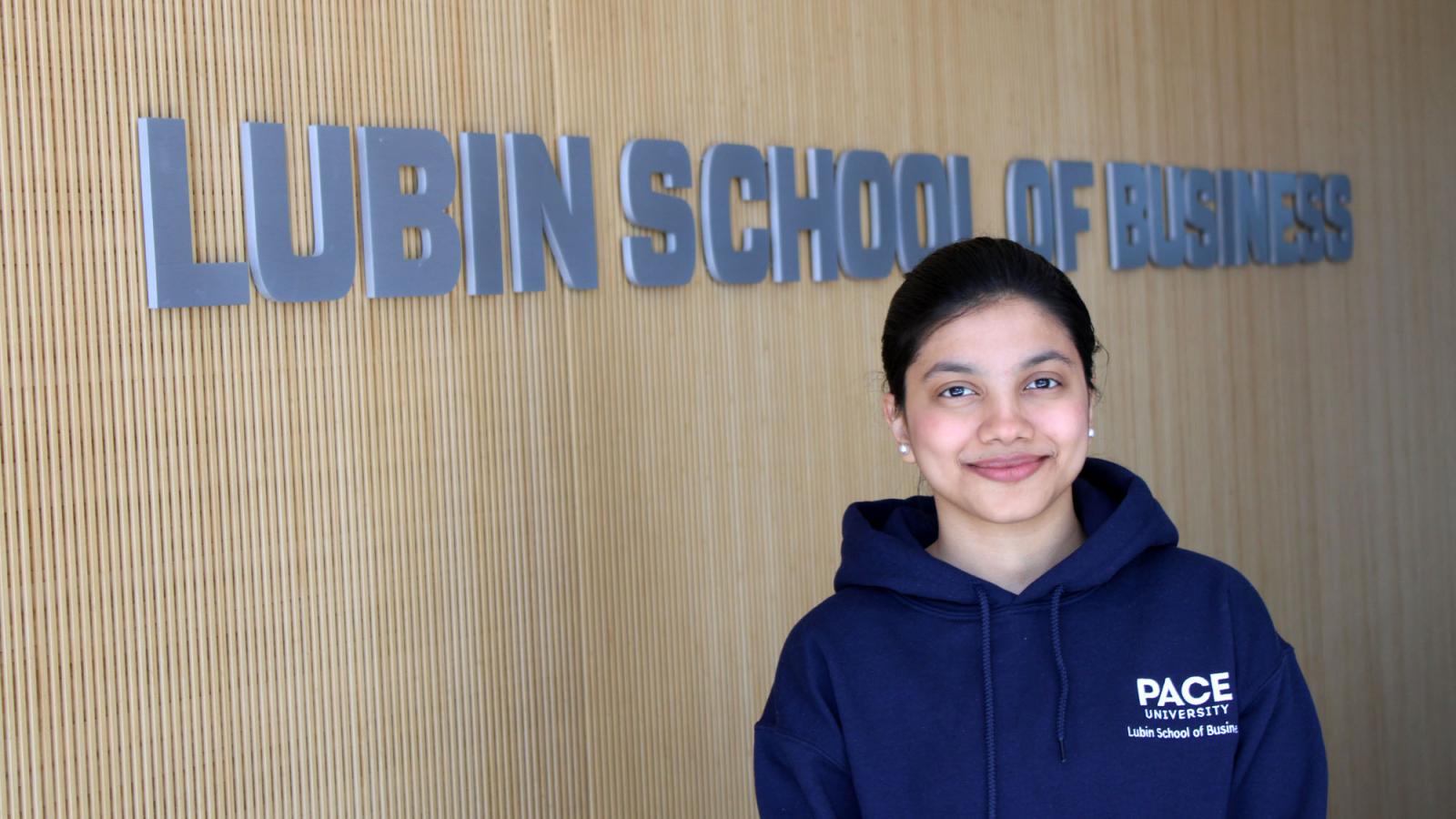

Shruti Dhapodkar
Marketing Data Manager, Case Western Reserve University
Class of 2023
MBA in Marketing Analytics
Internship: Product Marketing & Business Development Intern, NJ Transit
Pronouns: She/Her

Shruti Dhapodkar is conquering more than just her MBA in Marketing Analytics at the Lubin School of Business. As a graduate assistant within Lubin's Office of Communications and External Relations, Shruti helped coordinate campus events, edited newsletters, and assisted in social media strategy—and it's that real-world experience that helped her score her summer internship with NJ Transit and that led to her internship offer being extended into her final semester at Lubin.
How has the Lubin School of Business helped you prepare for your current internship?
Lubin resources, like Career Services, played a vital role in supporting my internship search. They provided valuable assistance through networking events, resume preparation, and mock interviews. These events helped me connect with industry professionals, expand my network, and gain insight into different career paths. With their help, I refined my resume to effectively showcase my skills and experiences. Through mock interviews, I received constructive feedback, improving my interview skills and boosting my confidence. The comprehensive support from Lubin greatly contributed to my career development and success.
What attracted you to this internship?
Initially, I was searching specifically for marketing analytical roles, but I did not find a suitable match. Then, this opportunity with NJ Transit presented itself, and I decided to pursue it. After going through the interview process and being selected, I realized that product marketing is something I am genuinely interested in. It incorporates the analytical aspect of analyzing product performance.
Describe what a typical day looks like as an intern at NJ Transit?
My work schedule is a combination of in-office and remote activities. On days when I'm physically present in the office, my mornings typically revolve around attending meetings. Following that, I receive task assignments from different individuals, such as the senior director, product marketing team, marketing analyst, or chief marketing officer. Throughout the day, I dedicate myself to completing these tasks.
During lunchtime, I meet up with my intern friends on the 10th floor, which offers breathtaking views of Newark. I then resume my work and assist with various day-to-day office responsibilities. Additionally, I have the privilege of attending events and volunteering as an NJ Transit ambassador. This role allows me to visit different facilities and stations, representing and promoting NJ Transit.
What has been the highlight or most enjoyable aspect of your internship so far?
The highlight of my experience so far has been working in a large organization and attending intern events, which helped me meet new people and expand my network. NJ Transit truly values its interns, as shown by the vice president's behavior. Whenever we cross paths, he remembers my name and warmly greets me, reflecting the genuine care and attention given to us interns. Being a part of the marketing department also comes with the perk of receiving numerous promotional goodies, all branded with NJ Transit logos, which is a plus.
You previously served as a graduate assistant within the Lubin School of Business. How did that experience prepare you for your current role at NJ Transit? How has this experience shaped or impacted your career goals?
Ever since I started my MBA program, working as a graduate assistant has been a game-changer for me. It gave me real-world experience working in an actual American corporate setting, which was super valuable. I learned a ton from my time working closely with the director of communications. That experience led me to my position at NJ Transit. When I was in the interview, everything I discussed was straight from my experience as a GA. It really helped me showcase my skills and knowledge in a practical way.
This experience at NJ Transit is going to have a big impact on my next semester at Lubin. I know it's going to make my next semester at Lubin more exciting and meaningful as I'll be able to bring real-world experiences and perspectives into my coursework. It's all about bridging that gap between theory and practice.
How will this experience impact your next semester at Lubin?
This experience at NJ Transit is going to have a big impact on my next semester at Lubin. It's not just about sitting in classrooms and studying theories anymore! I'll be diving into the real world and getting hands-on with marketing and business development strategies. It's like taking what I have learned in class and applying it to actual situations. I know it's going to make my next semester at Lubin more exciting and meaningful as I'll be able to bring real-world experiences and perspectives into my coursework. It's all about bridging that gap between theory and practice.
Do you have any advice for other Lubin students who would like to pursue an internship in the future?
My advice is to focus on networking. Connect with professionals, attend career events, and build relationships. Tailor your resume. Persistence and a strong network will increase your chances of securing a valuable internship experience.
Connect with Shruti:
Apply Now: Wilson Center Faculty Fellowship
In an effort to build a diverse portfolio of research projects with a focus on the identification and analysis of immediate issues facing nonprofits, NGOs, and social enterprises, the Helene T. and Grant M. Wilson Center for Social Entrepreneurship invites Pace University faculty to apply for appointments as 2023–2024 Wilson Center Fellows.

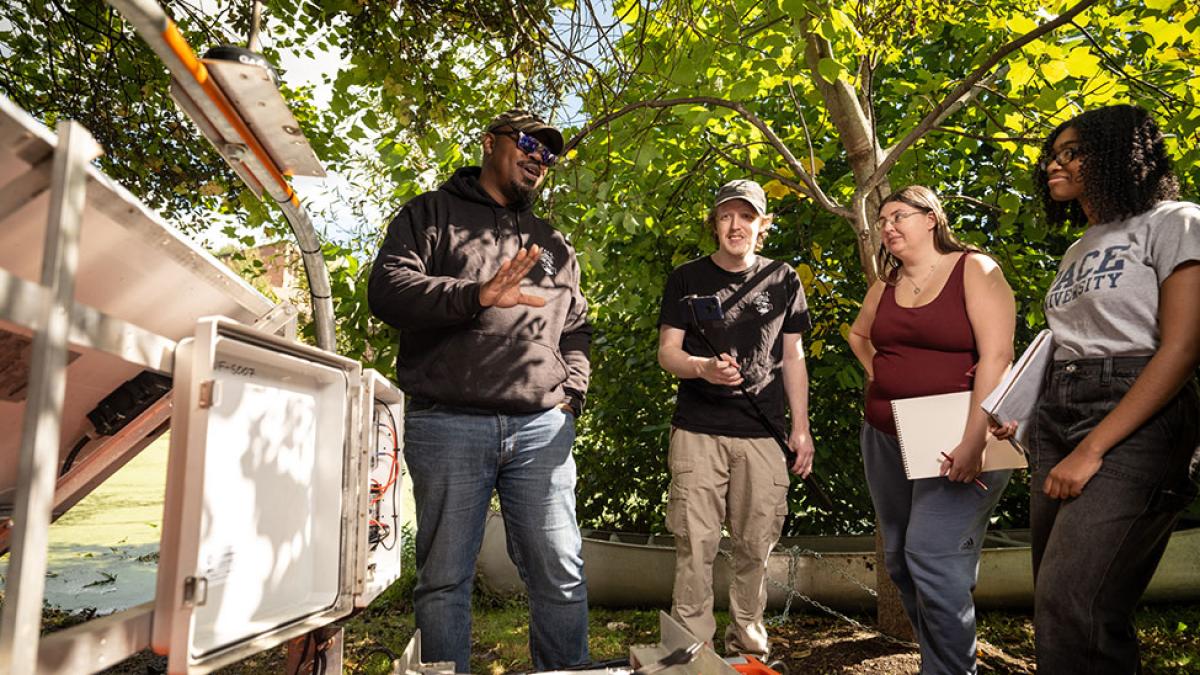
In an effort to build a diverse portfolio of research projects with a focus on the identification and analysis of immediate issues facing nonprofits, NGOs, and social enterprises, the Helene T. and Grant M. Wilson Center for Social Entrepreneurship invites Pace University faculty to apply for appointments as 2023–2024 Wilson Center Fellows.
Fellows will serve a 1-year term (October through October). During that time, Wilson Fellows will work on specific projects (case studies and academic research are strongly preferred, interdisciplinary work is encouraged) that support the Center’s mission and goals. In return, fellows will receive $5,000 of research funding (placed in a Scholarly Research Account) provided in two installments. The initial installment in the amount of $2,500 will be transferred to your scholarly research account upon appointment. The remaining $2,500 will be transferred when the final deliverable paper has been accepted by the committee (no later than September 2024). Fellows may reapply after a 4-year hiatus including the award year.
Application Deadline: Wednesday, September 27, at 5:00 p.m.
Requirements
- Faculty member at Pace, tenure-track or tenured candidates preferred. New/incoming faculty are eligible to apply.
- Submit a 1-2 page interim report in April 2024.
- Participate in a Faculty Steering Committee for a 3-year term including the award year.
- Give permission to display work on the University’s DigitalCommons Repository.
- Participate in an on-campus research presentation in the academic year following the award year.
- Submit a final deliverable (working paper) acknowledging the Wilson Center, by September 2024.
Updates to Trash Collection and Waste Disposal
To reduce waste, increase recycling, and decrease costs, Pace University will implement a centralized trash collection program on all campuses, effective Friday, September 1, 2023.


To reduce waste, increase recycling, and decrease costs, the University will implement a centralized trash collection program on all campuses, effective Friday, September 1. Many other colleges and universities have successfully implemented this shift.
Cleaning staff will no longer remove trash or recycling from individual offices or classrooms. Centrally located trash and recycling bins will be placed in strategic locations in all buildings, marked with proper signage. Upon request, we will provide faculty and staff with trays for collecting paper during the day, which they must then bring to the central recycling bins.
This shift to a centralized program will improve the separation of waste and greatly reduce the usage of plastic bin liners while helping the University to track waste management data and meet our sustainability goals. It also provides the opportunity to increase composting at Pace—organic waste bins will be provided in cafeterias on all three campuses.
For more information or for faculty and staff to request a paper collection tray, please contact Facilities.
Landing a Dream Internship in Luxury PR
Arts and Entertainment Management student Angelina Johnson '24 is pursuing her dreams. During her freshman year, she set her eyes on Nike Communications, a female-founded communications firm that markets luxury brands. As a rising senior, Angelina is now working with Nike Communications as a Luxury PR Intern—learning the ropes of the industry, networking with fellow interns and company leaders, and connecting public figures with prestigious brands.
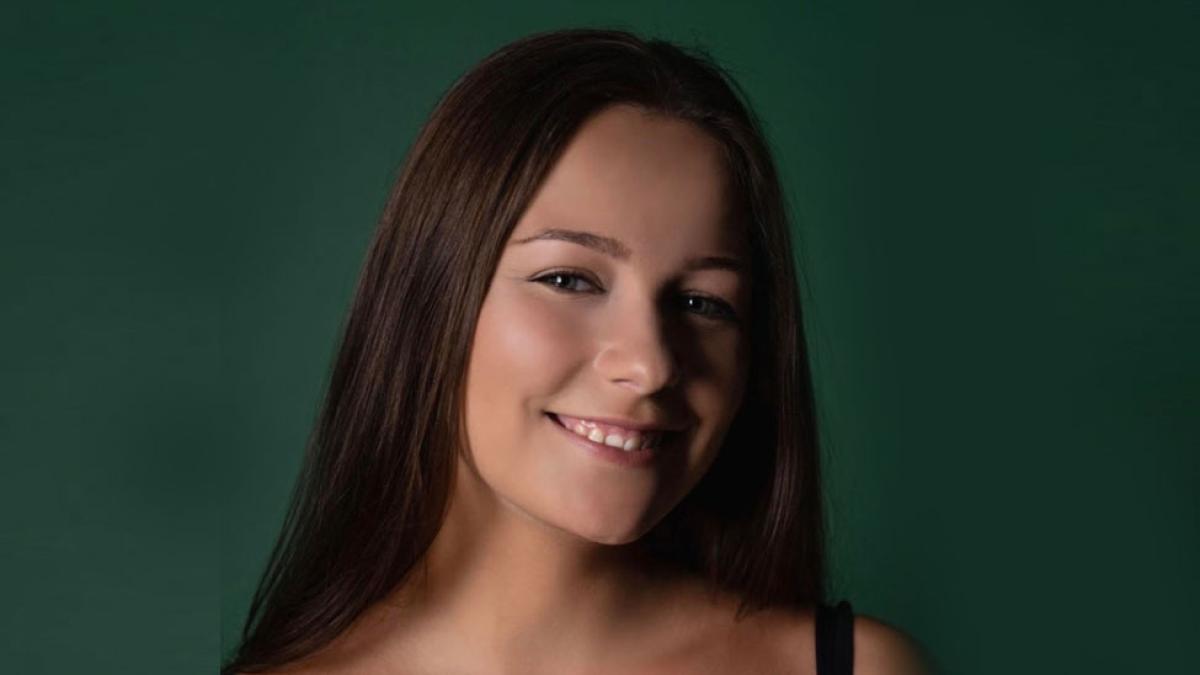
Angelina Johnson
Digital Merchant Coordinator, Michael Kors
Class of 2024
BBA in Arts and Entertainment Management
Internship: Luxury PR Intern, Nike Communications
Pronouns: She/Her/Hers
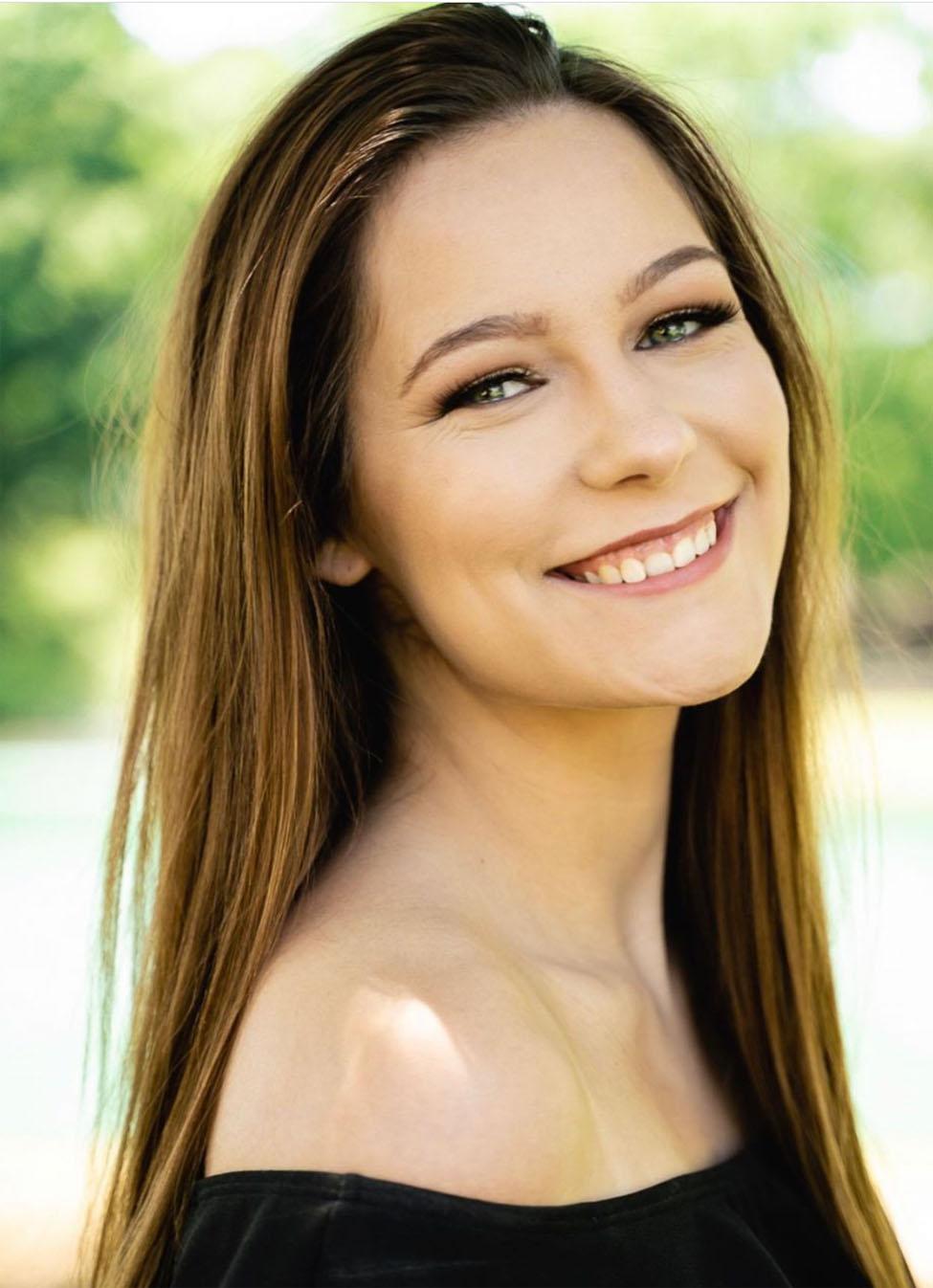
Arts and Entertainment Management student Angelina Johnson is pursuing her dreams. During her freshman year, she set her eyes on Nike Communications, a female-founded communications firm that markets luxury brands. As a rising senior, Angelina is now working with Nike Communications as a Luxury PR Intern—learning the ropes of the industry, networking with fellow interns and company leaders, and connecting public figures with prestigious brands.
How has the Lubin School of Business helped you prepare for your current internship?
The mentoring and connections that the Lubin School of Business has afforded me have prepared me to enter the corporate world. Everything from how to network in the office to ways to stay organized in my tasks to knowing the latest technology—I can credit Lubin for all of it.
What attracted you to this internship?
I have wanted to work for Nike Communications since my freshman year. They have a wonderful reputation and an amazing office culture.
Describe what a typical day looks like as an intern at Nike Communications.
After arriving at the office, I scan the Internet for coverage of our clients. In the morning, there are usually meetings with our team, clients, or intern catchups. Then, I assist in projects like making media lists, researching, updating servers, managing inventory, and sending samples to influencers and clients. I often eat lunch with the other interns and finish up projects towards the end of the day.
What has been the highlight or most enjoyable aspect of your internship so far?
I have loved being a part of an internship program. The Nike Communications team invests in its interns. Getting to meet and connect with other interns from different universities has been amazing!
How has this experience shaped or impacted your career goals?
As I approach my senior year, the "real world" seems to be creeping up on me. Seeing what it is like to work in a job that I enjoy all week has been helpful to me and has shown me what I hope to accomplish in an industry I am passionate about.
How will this experience impact your next semester at Lubin?
Having another internship under my belt allows me to bring yet another unique perspective to my schoolwork and classroom discussions. It will also help me in conversations with my mentor and career counselor when we discuss my post-grad goals.
Building a professional relationship with your Career Services counselor will help take the pressure off when it comes to the job search process. Meet with your mentor and discuss how to enhance your resume and network for the industry you want to go in to. You never know who knows who.
Do you have any advice for other Lubin students who would like to pursue an internship in the future?
Go to Career Services! Building a professional relationship with your career counselor will help take the pressure off when it comes to the job search process. You should also meet with your mentor and discuss how to enhance your resume and network for the industry you want to go in to. You never know who knows who.
Connect with Angelina: